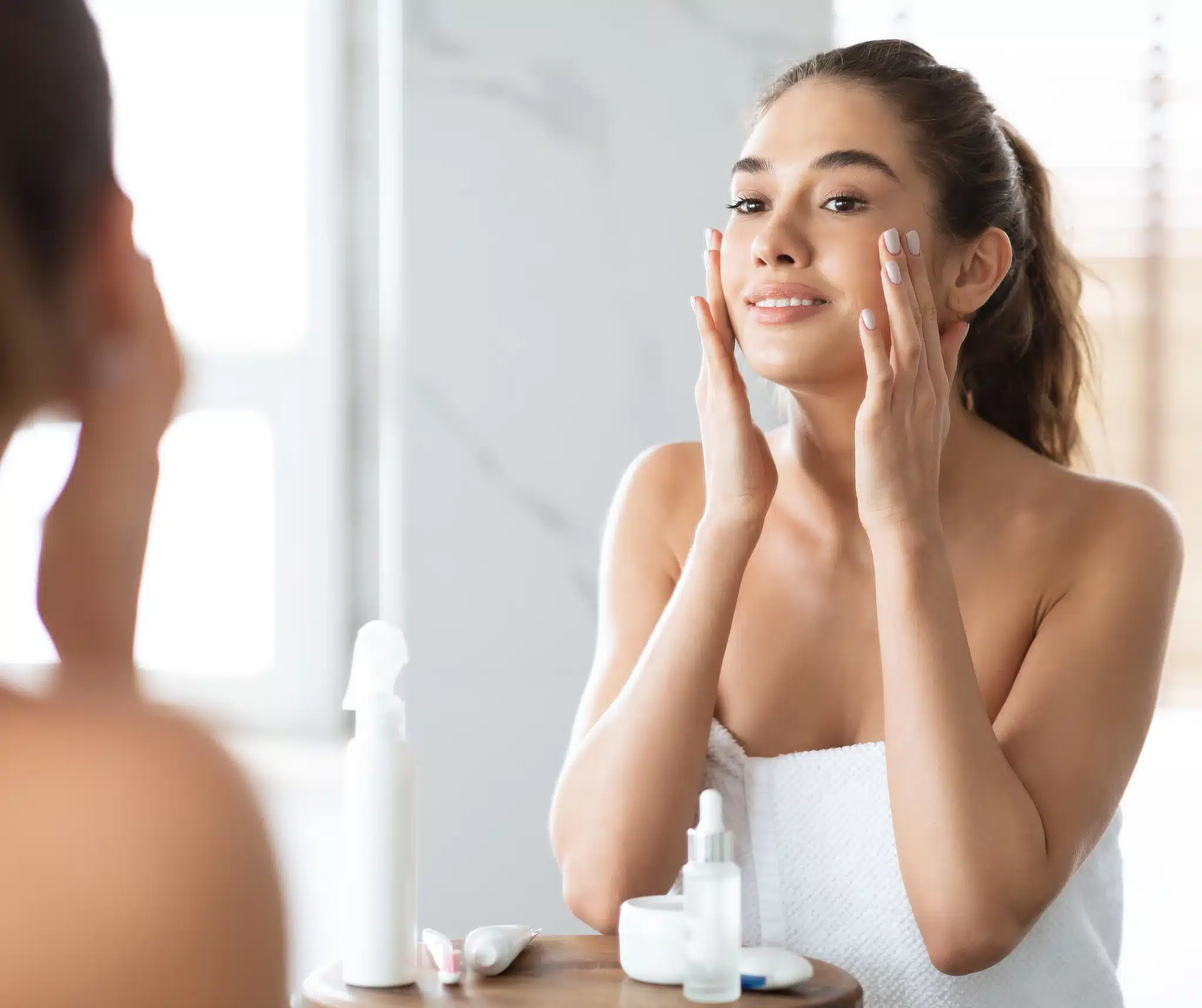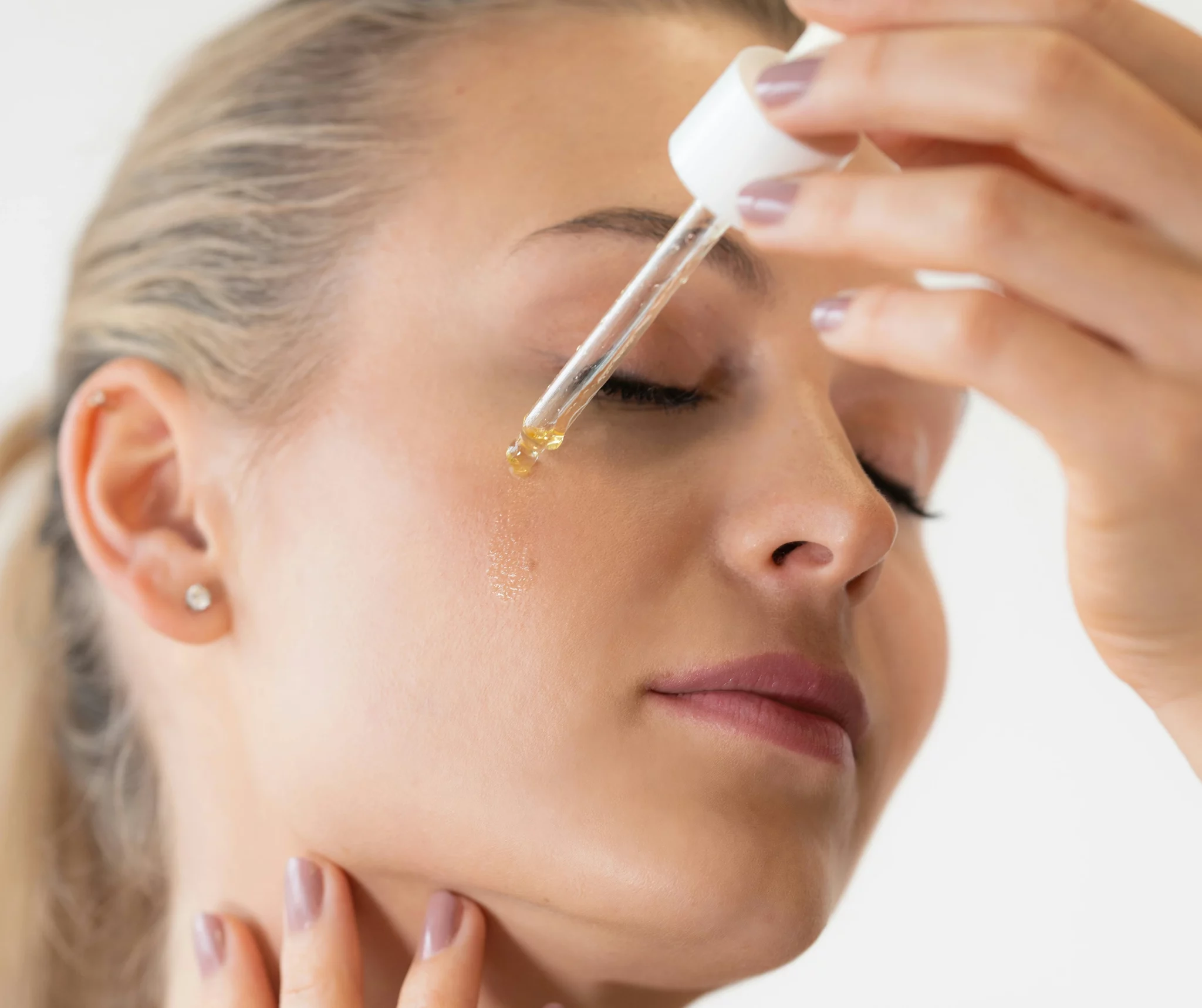

As your hormones shift during perimenopause and menopause, your skin often tells the story before anything else. That glow you once had? It may begin to fade. Fine lines become more noticeable. Skin starts to feel thinner, drier, or less firm. Maybe you’re noticing discoloration or that your usual skincare routine just isn’t working anymore.
If this sounds familiar, you’re not imagining it, and you’re not alone.
At Gendler Dermatology in New York City, we’ve spent over 35 years supporting women through all phases of hormonal change. Board-certified dermatologist, Dr. Ellen Gendler, shares evidence-based strategies that can help you take control of menopausal skin changes.
Understanding Menopause and Skin Changes
Menopause is defined as the point at which you haven’t had a menstrual cycle for 12 consecutive months. The years leading up to it, known as perimenopause, can begin as early as your 40s and last for several years. During this time, estrogen and progesterone levels fluctuate and eventually decline. These hormonal changes don’t affect only your reproductive system, they also affect your entire body, including your largest organ: your skin.
Estrogen is vital for keeping your skin plump, firm, and hydrated. It supports collagen production, maintains elasticity, and even helps regulate pigmentation. As estrogen levels drop, so does your skin’s natural ability to hold moisture and regenerate itself efficiently.
Perimenopause vs. Menopause: How Skin Changes Over Time
Hormonal skin changes can be subtle at first, but they tend to progress as you move through perimenopause into menopause.
Common Skin Changes During Perimenopause:
- Increased dryness and sensitivity
- Early signs of collagen loss (fine lines, dullness)
- More reactive skin, especially to products you once tolerated
Skin Changes in Menopause:
- Thinning of the skin and loss of elasticity
- More pronounced skin pigment changes (e.g., melasma or age spots)
- Deepening of wrinkles and sagging in the face and neck
- Crepey skin on the arms, chest, and legs
- Slower wound healing
- Vaginal and vulvar dryness, which can affect skin comfort and intimacy
These changes are deeply personal and can impact how you feel about yourself. The good news is: there are real solutions as Dr. Gendler explains in a recent video interview about skin changes during menopause.
Skincare Strategies for Menopausal Skin
Menopausal skin requires a more intentional approach. One that prioritizes hydration, barrier repair, and collagen support.
At Gendler Dermatology, we offer personalized skincare plans built around scientifically-backed ingredients and techniques, including the use of topical estrogen creams for eligible patients.
Some of the most effective tools for aging, hormone-depleted skin include:
- Topical estrogen creams (prescribed by your dermatologist): These can restore volume and hydration to facial skin when used safely and correctly under medical supervision.
- Peptides and growth factors to support collagen regeneration
- DNA Repair Enzymes to help combat the effects of ultraviolet light on the skin
- Retinoids (used carefully) to boost cell turnover and minimize fine lines
- Moisturizers with ceramides and hyaluronic acid to restore and protect the skin barrier
- Broad-spectrum sunscreens daily
The goal isn’t to turn back time, but to support skin that looks and feels healthy, strong, and vibrant at every age. Explore Dr. Gendler’s curated skincare products that are formulated specifically for hormonally aging skin.
Lifestyle Tips to Support Skin Health During Menopause
What you put on your skin matters, but so does how you care for your whole self. These lifestyle changes can make a noticeable difference:
- Prioritize sleep. Skin repairs itself overnight, quality rest is non-negotiable.
- Stay hydrated. Drink plenty of water and use a humidifier, especially in drier climates or winter months.
- Eat skin-supportive foods. Omega-3 fatty acids, antioxidants, and protein-rich foods help fuel collagen production and reduce inflammation.
- Manage stress. Chronic stress accelerates skin aging. Meditation, gentle movement, or therapy can make a big difference.
- Protect against UV damage. Wear sunscreen every day, even in winter or indoors if you’re near windows. Menopausal skin is quite vulnerable to sun-related aging and pigment changes.
- Limit alcohol and sugar. Both can contribute to inflammation, dehydration, and collagen breakdown.
When to See a Dermatologist for Menopause Skin Changes
If your skin is changing and it’s affecting how you feel, it’s time to talk to someone who understands.
A board-certified dermatologist can offer treatments and products that are suited to your body’s specific needs. Whether it’s evaluating if topical estrogen is right for you, managing hyperpigmentation, or choosing the right skincare plan, professional guidance makes all the difference.
At Gendler Dermatology, we work closely with women in NYC, New York, and surrounding areas to help them navigate this life stage with confidence. You don’t need to settle for dry, sagging, or uncomfortable skin. There are real, effective solutions and we’re here to help you find them.
Book an Anti-Aging Skin Consultation
Menopause doesn’t have to mean the end of great skin. With the right care, you can glow through every phase of life. Schedule a menopause skin consultation with Dr. Gendler in New York City today and take the first step toward skin that feels like you again.
Posted In: Skin Care
Related Posts

February 16, 2026
Skincare in Your 20s: Common Concerns and Expert Tips
When you’re in your 20s, taking care of your skin can feel overwhelming. Everywhere you turn, there’s another influe...

January 2, 2026
Why DNA Repair Enzymes Matter for Healthy, Beautiful Skin
Every day, your skin works hard to protect you from the world — sunlight, pollution, and environmental stress can all ...

November 27, 2025
Does Sunscreen Prevent Tanning? The Truth About UVA Rays
I often meet patients who sit across from me in the exam room, proudly telling me they've been diligent about wearing su...


